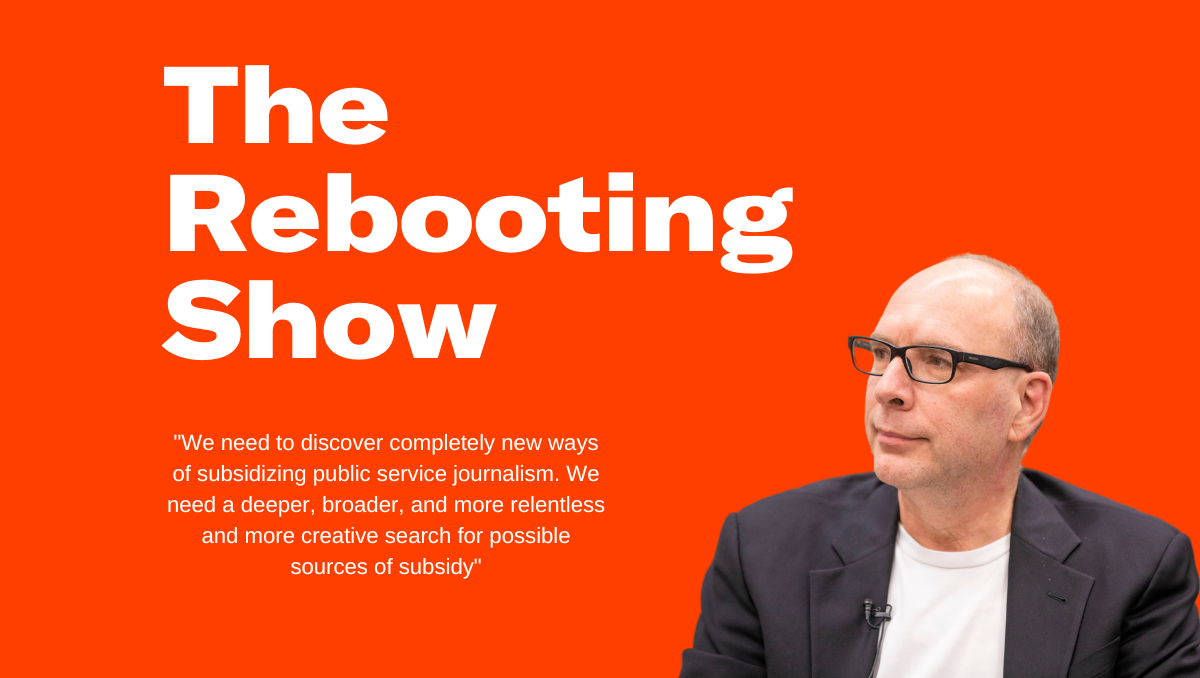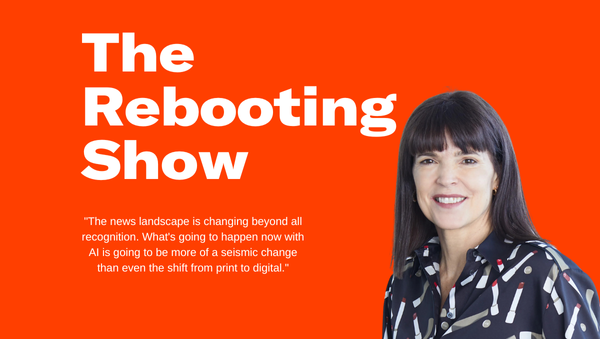Omni-competition
Everyone, everywhere, all at once
Thanks to the PPA for inviting me to speak at the PPA Festival in London today. I’m staying around for another event, the INMA World Congress of News Media. Drop me a note if you’ll be around INMA tomorrow or Thursday. My email is bmorrissey@therebooting.com.
In today’s issue, a new podcast with NYU’s Jay Rosen, the new role of magazines, and (for members) an attempt to chart the increasing levels of competition in my own small corner of the Information Space.
Reminder: Sign up for The Rebooting membership for full access to all content and invites to exclusive events.

On this week’s episode of The Rebooting Show, I had a conversation with Jay Rosen, a professor of journalism at NYU. I find Jay an incisive journalism critic. He’s got a great catchphrase for the current election cycle: the stakes,not the race. It’s his way of urging journalists not to get distracted from their essential public service role. In this conversation we discuss the diminished state of the industry, promising nonprofit models and new funding models that subsidize public service journalism since the economic foundations supporting it have crumbled, and The New York Times has strayed farther into progressivism since Trump’s ride down that escalator. Listen on Apple | Spotify | other podcast platforms.
Recommendations
The fix is in. All algorithms are black boxes. One intriguing mystery: Why has Reddit come to dominate the SERP? Reddit has gone from the 60th most visible site in Google rankings to No. 6. This is likely a result of Google seeing how often people add reddit to the end of queries because, well, the search results have become a mess. The result for publishers: less traffic. (LinkedIn)
The pivot to storefronts. On last week’s PvA episode, I posited that AI accelerating the amount of digital ephemera into infinity, we’d see more brand building taking place in the real world. Magazines are already marketing pieces, and digital media brands will continue to expand into physical retail. This weekend, Airmail opened a newsstand in New York’s Greenwich Village, following in the footsteps of its role model, Monocle. (Airmail)
What’s a magazine anyway? The New York Times chose High Snobiety as the centerpiece for an article about the future of magazines. (This is a style section piece, so the focus is on the editor rather than the business.) It’s telling that High Snobiety is used because it’s not really a magazine. It uses the magazine as a brand piece, but its roots are as a blog – and it’s now owned by an e-commerce company, Zalando. I visited High Snobiety’s offices in Berlin back in 2017 to talk to CEO David Fischer. (NYT)
VIP+ Pro Max Premium. Events are a growing part of many media business models. And the high end will get higher end. Forget buying tickets or even applying to attend the most exclusive gatherings like Brilliant Minds, Mediaspopes and The Weekend. (WSJ)
The Great De-bossification. “Today the half-life of knowledge is growing shorter and shorter and the “way of this is the way things were done” is often the opposite of what needs to be done as new competitors and customer expectations do not care a fig about the way it was or is. AI will turbo-charge this change in ways deeper and faster than anyone of us can even comprehend as the cost of knowledge goes to zero and enables talented individuals to combine, re-combine, scale and re-invent in new ways.” (Rishad Tobaccowala)
The Great Fragmentation. “Fragmentation is happening across media for two reasons: 1) falling barriers in production, marketing, distribution and monetization are resulting in an explosion of content; and 2) while most of this content is crappy by traditional measures of quality, the consumer definition of quality is changing. New attributes that consumers value include authenticity, relatability, relevance to my chosen community, undiscovered, etc.” (Doug Shapiro)
Omni-competition
One of the defining characteristics of the post-analog media business is that the real competition is not other publishers. Instead, various companies end up competing with publishers, both for scarce attention and for business, whether subscriptions or advertising.
I decided to sketch out how I see The Rebooting’s competitive set, with axes for media and non-media and mass and niche. (This is a work in progress.)




